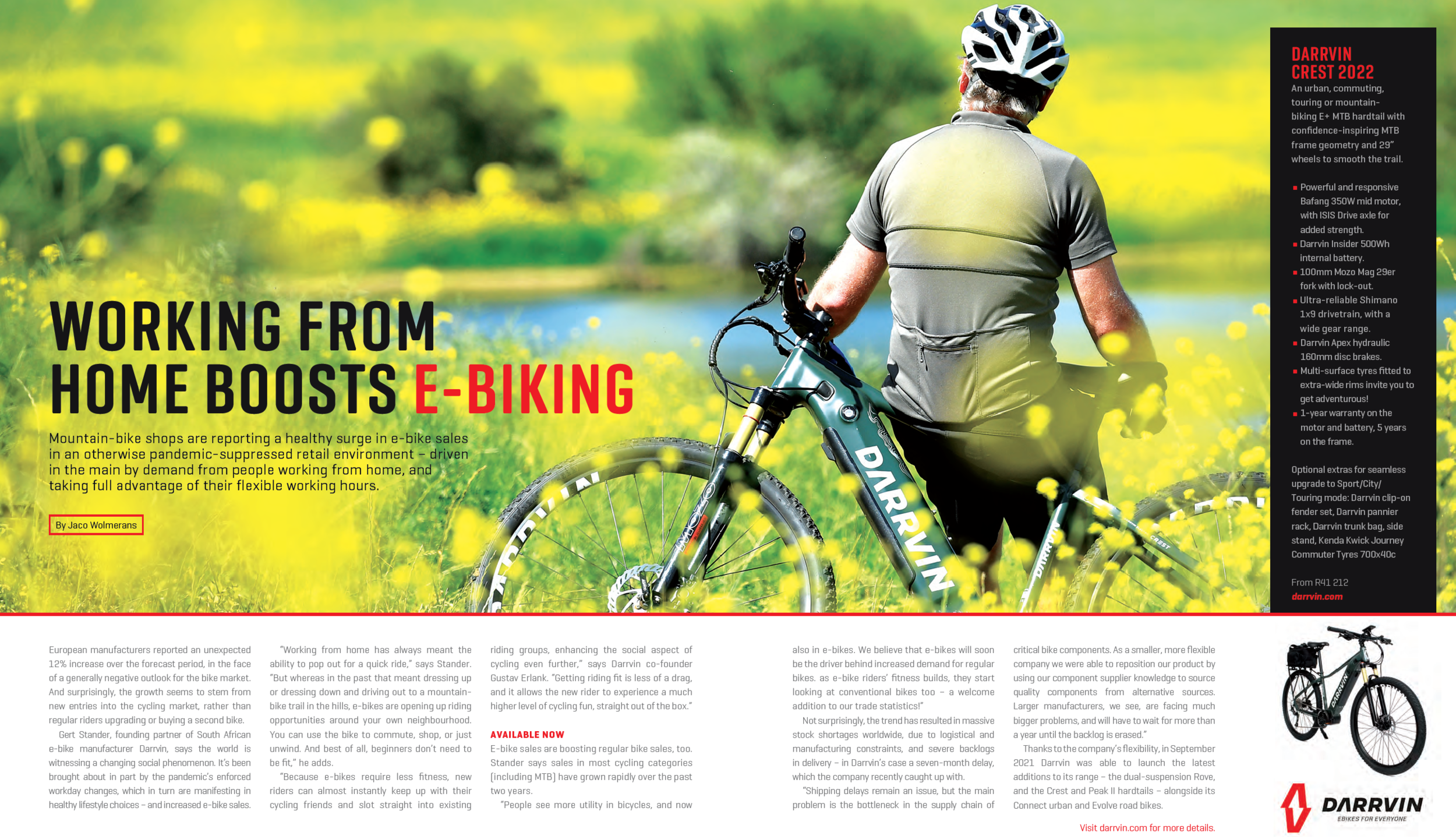Working from home boost e-bike sales
- By Jaco Wolmarans
Mountain bike shops are reporting a healthy surge in e-bike bike sales in an otherwise pandemic-suppressed retail environment – driven in the main by demand from people working from home, and taking full advantage of flexible working hours.
European manufacturers report an unexpected 12% increase over the forecast period in the face of the generally negative outlook for the bike market. And surprisingly, the growth seems to stem from new entries into the cycling market, rather than regular riders upgrading or buying a second bike.
Gert Stander, founding partner of South African e-bike manufacturer Darrvin, say the world is witnessing a changing social phenomenon. This is brought about in part by the pandemic’s enforced workday changes, which in turn are manifesting in healthy lifestyle choices – and increased e-bike sales.
“Working from home has always meant the ability to pop out for a quick ride,” says Stander. “But whereas in the past that meant dressing up or dressing down and driving out to an MTB trail in the hills, e-bikes are opening up riding opportunities around your own neighborhood. You can use the bike to commute, shop or just unwind. And best of all, beginners don’t need to be fit,” he says.
“Because e-bikes require less fitness, new riders can almost instantly keep up with their cycling friends and slot straight into existing riding groups, enhancing the social aspect of cycling even further,” says Erlank. “Getting riding fit is less of a drag, and it allows the new rider to experience a much higher level of cycling fun, straight out of the box.”
E-bike sales are also boosting regular bike sales. Stander says sales in most cycling categories (including MTB) have grown rapidly over the past two years.
“People see more utility in cycles, and now also in e-bikes. We believe that e-bikes will soon be the driver behind increased demand for regular bikes. As e-bike riders’ fitness builds, they start looking at conventional bikes too, a welcome addition to our trade statistics!”
Not surprisingly, the trend has resulted in worldwide, massive stock shortages due to logistical and manufacturing constraints, and severe backlogs in delivery. In Darrvin’s case, a seven-months delay which the company recently caught up with.
“Shipping delays remains an issue, but the main problem is the bottleneck in the supply chain of critical bike components. As a smaller, more flexible company we were able to reposition our product by using our component supplier knowledge to source quality components from alternative sources. Larger manufacturers, we see, are facing much bigger problems, and will have to wait for more than a year until the backlog is erased.”
Thanks to its flexibility, Darrvin was able to launch the latest additions to its range, the dual-suspension Rove, Crest and Peak II hardtails, alongside its Connect urban and Evolve road bikes, this month. Visit www.darrvin.com for more details.




